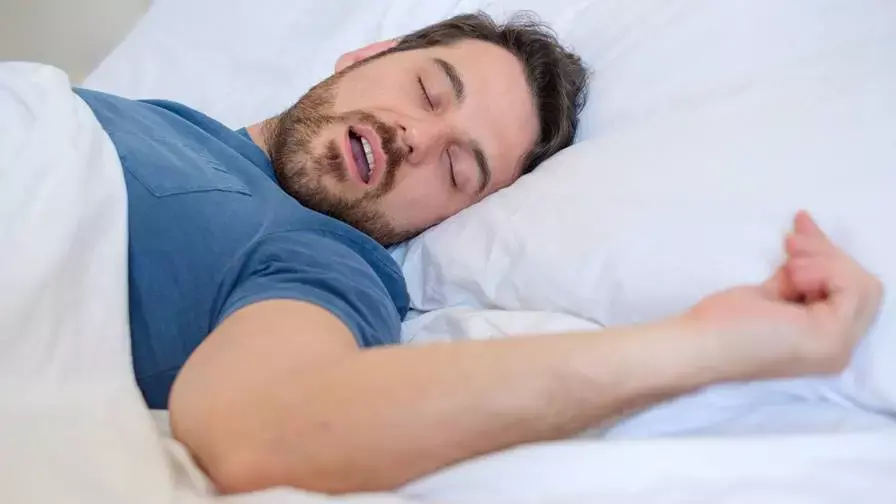- Home
- Medical news & Guidelines
- Anesthesiology
- Cardiology and CTVS
- Critical Care
- Dentistry
- Dermatology
- Diabetes and Endocrinology
- ENT
- Gastroenterology
- Medicine
- Nephrology
- Neurology
- Obstretics-Gynaecology
- Oncology
- Ophthalmology
- Orthopaedics
- Pediatrics-Neonatology
- Psychiatry
- Pulmonology
- Radiology
- Surgery
- Urology
- Laboratory Medicine
- Diet
- Nursing
- Paramedical
- Physiotherapy
- Health news
- Fact Check
- Bone Health Fact Check
- Brain Health Fact Check
- Cancer Related Fact Check
- Child Care Fact Check
- Dental and oral health fact check
- Diabetes and metabolic health fact check
- Diet and Nutrition Fact Check
- Eye and ENT Care Fact Check
- Fitness fact check
- Gut health fact check
- Heart health fact check
- Kidney health fact check
- Medical education fact check
- Men's health fact check
- Respiratory fact check
- Skin and hair care fact check
- Vaccine and Immunization fact check
- Women's health fact check
- AYUSH
- State News
- Andaman and Nicobar Islands
- Andhra Pradesh
- Arunachal Pradesh
- Assam
- Bihar
- Chandigarh
- Chattisgarh
- Dadra and Nagar Haveli
- Daman and Diu
- Delhi
- Goa
- Gujarat
- Haryana
- Himachal Pradesh
- Jammu & Kashmir
- Jharkhand
- Karnataka
- Kerala
- Ladakh
- Lakshadweep
- Madhya Pradesh
- Maharashtra
- Manipur
- Meghalaya
- Mizoram
- Nagaland
- Odisha
- Puducherry
- Punjab
- Rajasthan
- Sikkim
- Tamil Nadu
- Telangana
- Tripura
- Uttar Pradesh
- Uttrakhand
- West Bengal
- Medical Education
- Industry
Can hyperinsulinemia or insulin resistance lead to snoring? Study sheds light

China: Hyperinsulinemia or insulin resistance may be the reason for common snoring, a recent study in the European Journal of Clinical Investigation has suggested. The study found that people who snore may be subjected to higher glycosylated hemoglobin (HbA1c), fasting blood glucose (FBG), 2h-glucose post-challenge (2hGlu), and fasting insulin (FINS).
Previous studies have shown snoring and impaired glucose metabolism to be common manifestations and an association between the two. Yuan Zhang, Department of Respiratory Medicine, Xiangya Hospital, Central South University, Changsha, China, and colleagues, therefore, aimed to estimate the causal associations between snoring and glycemic traits.
For this purpose, the researchers compared the weighted mean differences (WMD) for fasting insulin, fasting blood glucose, glycosylated hemoglobin, and 2h-glucose post-challenge levels between snorers and non-snorers by meta-analysis. Summary statistics were then obtained from published GWAS of snoring and glycemic traits to perform bidirectional two-sample MR.
The inverse variance weighting (IVW) method was applied as major estimate while MR Egger, Weighted median and MR-Robust Adjusted Profile Score (RAPS) played a subsidiary role.
The study led to the following findings:
- Snoring participants had higher FBG (WMD=0.14mmol/L), HbA1c (WMD=0.10%), FINS (WMD=0.92μIU/mL) and 2hGlu (WMD=0.30mmol/L) levels than non-snorers.
- Further, elevated FINS levels showed a robust causal effect on snoring (IVW: OR=1.07), which was consistent with complementary methods of MR Egger (OR=1.14), Weighted median (OR=1.11), and MR RAPS (OR=1.07).
- Such a causal situation was stable after identifying and removing the outliers in the sensitivity analysis.
- There was no causality of snoring on increasing FINS levels.
- There were no causal associations between snoring and the other three traits of FBG, HbA1c, and 2hGlu levels from either direction.
"Snorers are subjected to higher HbA1c, FBG, FINS, and 2hGlu levels, and elevated FINS levels further provide robust causality on snoring," the researchers wrote, suggesting that behind common snoring may lie hyperinsulinemia or insulin resistance.
Reference:
Yi, Minhan, et al. "Elevated Fasting Insulin Results in Snoring: a View Emerged From Causal Evaluation of Glycemic Traits and Snoring." European Journal of Clinical Investigation, 2022, pp. e13852.
Dr Kamal Kant Kohli-MBBS, DTCD- a chest specialist with more than 30 years of practice and a flair for writing clinical articles, Dr Kamal Kant Kohli joined Medical Dialogues as a Chief Editor of Medical News. Besides writing articles, as an editor, he proofreads and verifies all the medical content published on Medical Dialogues including those coming from journals, studies,medical conferences,guidelines etc. Email: drkohli@medicaldialogues.in. Contact no. 011-43720751


